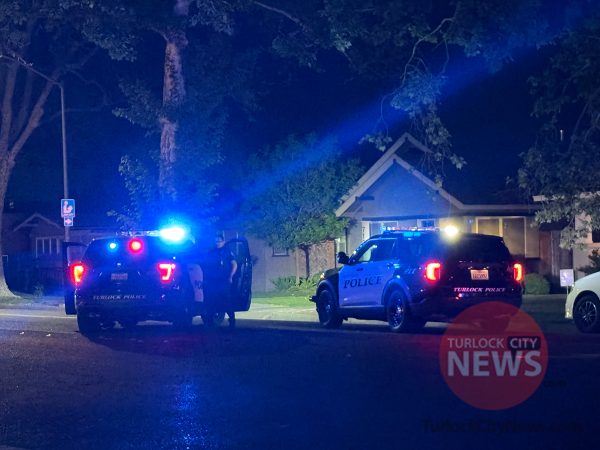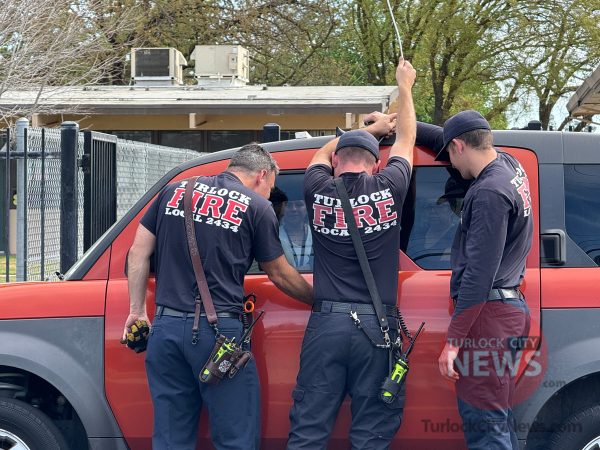Gov. Jerry Brown (D) proposed a new $154.9 billion state budget on Thursday, set to pay down the state's debt and start saving once again for the next rainy day.
“With a decade of intractable deficits behind us, California is poised to take advantage of the recovering economy and the tens of thousands of jobs now being created each month,” Brown said. “But given the vagaries of the business cycle, we must be ever vigilant in the commitment of public funds. Wisdom and prudence should be the order of the day.”
Local legislators Assemblymember Kristin Olsen (R-Modesto) and State Sen. Anthony Cannella (R-Ceres) offered mixed opinions on the proposed budget.
“In typical fashion, Gov. Brown has included plenty to like and plenty to dislike in his budget proposal,” Olsen said.
Both were pleased with plans to dedicate a portion of the budget to paying down debt. The proposal calls for $11 billion in debt to be paid off this year, and to eliminate the $24.9 billion in total debt by 2017-2018.
And both liked the budget's goal of paying back roughly $6 billion owed to local schools after years of deferrals – roughly half of the $11 billion in debt repayments. An additional $10 billion would come to local schools through the Proposition 98 guarantee in the proposed budget, increasing per-student spending by $2,188 in 2014-2015 over 2011-2012 levels.
Additionally, the budget contains $142.2 million in new funding for both the University of California and California State University systems. That funding requires both university systems to freeze student tuition and fees.
“I appreciate the Governor’s continued commitment to strengthening our education system,” Cannella said. “The Local Control Funding Formula helps even the playing field for students. Education is key to the future of our state.”
Both also like that the budget would make a $1.6 billion deposit into the state's savings account, often referred to as the rainy day fund. It would be the first deposit into the fund since 2007.
But Brown should have gone further, Olsen said, taking advantage of the state's rosy financial state to better plan for the future.
“A $1.6 billion deposit into the rainy day fund – a mere one percent of the total budget – is simply inadequate,” Olsen said. “Our cities would be bankrupt by now if they operated with such low reserves.”
Cannella agreed, arguing for more saving and less spending.
“As we look at budget surpluses, we need to build a robust rainy day fund and make sure that we do not use it on new programs that require ongoing spending,” Cannella said. “It is important to recognize that state revenue is volatile. We would be doing the state a disservice by spending the surplus after years of deficits.”
The budget also calls for $815 million in spending on infrastructure projects, conducting deferred maintenance on local roads, highways, K-12 schools, state parks, community colleges, and other facilities.
Climate change and water sustainability are major focuses in the budget. A total of $850 million from Cap and Trade auction proceeds would be allocated to reduce greenhouse gasses, including $250 million dedicated to the controversial High-Speed Rail project. A further $619 million would be spent to expand water storage, improve drinking water, and increase flood protection.
And the budget plans for the Affordable Care Act, better known as Obamacare, investing $670 million to expand Medi-Cal benefits. The new benefits will assist with mental health, substance use disorders, adult dental care, and nutrition.
The budget proposed Thursday is just the start of what will likely be months of budget negotiations with lawmakers. The final budget, due by June 15, could be quite different from Brown's proposal.
Local lawmakers reiterated their hopes that the final budget will contain less spending for new programs, and increased saving.
“The proposal is a good start, but with such volatile revenue sources, I urge the Governor and Democrat lawmakers to make a stronger commitment to building a healthy reserve this year,” Olsen said.







